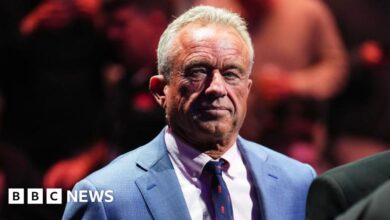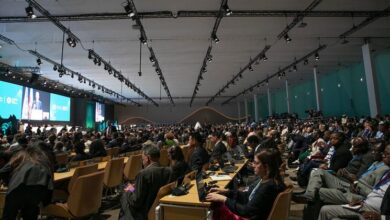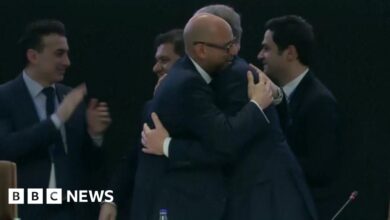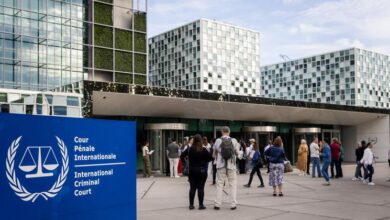The UN Secretary General condemned the attacks on peacekeepers in Lebanon
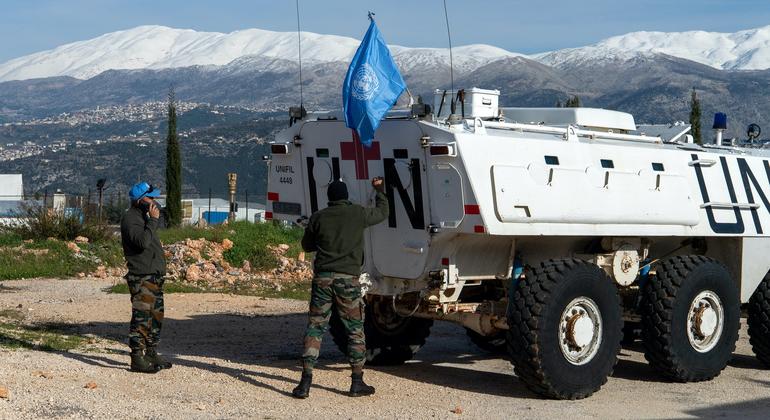
According to the United Nations Interim Force in Lebanon (UNIT), two peacekeepers were injured on Friday after two explosions occurred near an observation tower.
This follows one incident on Thursday when an Israel Defense Forces (IDF) Merkava tank opened fire on the observation tower at UNIFIL headquarters in Naqoura, scoring a direct hit and injuring two more personnel.
Established by the United Nations Security CouncilUNIFIL is assigned the task by overseeing the cessation of hostilities following the war between Israel and Hezbollah, confirming the withdrawal of Israeli forces from southern Lebanon, and assisting the Lebanese government in restoring its authority in the region.
‘Green helmets’ must be protected
Speak at a press conference during the ASEAN Summit in Vientiane, capital of the Lao People’s Democratic Republic, Secretary General António Guterres “condemns the shooting at the United Nations headquarters, injuring two peacekeepers, in violation of international humanitarian law.”
“Peacekeepers must be protected by all parties to the conflict and what happened is clearly condemnable.”
He also expressed caution about escalating violence in Lebanon.
“What we are seeing in Lebanon is a large-scale campaign of attacks, heavy bombing, obviously including bombardment from the side of Hezbollah, but that is causing some Large numbers of civilians died.”
Reports indicate that more than 2,000 people were killed and more than a million displaced.
“We witness an enormous tragedy in Lebanon and we must do everything to avoid an all-out war in Lebanon,” Mr. Guterres added.
The peacekeepers remained at their posts
Despite difficult conditions, UNIFIL peacekeepers continued to operate.
According to the Mission, several security walls at United Nations location 1-31, near Blue line in Labbouneh, collapsed when an IDF vehicle crashed into the siege and IDF tanks moved close to the United Nations post.
Established by the United Nations and stretching 120 km along Lebanon’s southern border, Blue line is a “cash out line”. Its practical purpose was to confirm Israel’s withdrawal from southern Lebanon. Several UNIFIL positions lie on or near it.
The UNIFIL rapid reaction force has been deployed to support and reinforce the position, with peacekeepers still on site.
UNIFIL: “These incidents once again put UN peacekeepers, who are serving in southern Lebanon at the request of the Security Council, at very serious risk.” stated on social media platform X.
“The safety and security of United Nations personnel and property must be guaranteed and the inviolability of United Nations premises must be respected at all times.”
Any deliberate attack against peacekeepers is a serious violation of international humanitarian law and United Nations Security Council Resolution 1701, which requires UNIFIL’s presence in area.

Destruction on the outskirts of Beirut.
The situation is getting worse for civilians
In Geneva, the United Nations human rights office, OHCHR, call to end the “killing and destruction.” [and] aggressive posture” of those in power, adding that the situation for civilians on the ground “in Lebanon, Gaza, Israel and Syria is getting worse.”
According to the United Nations Office for the Coordination of Humanitarian Affairs, on Thursday, airstrikes – without prior warning – targeted populated areas in the central district of Beirut, marking a major offensive third into the city since late September.OCHA).
According to Lebanese authorities, 22 people died and hundreds were injured.
OHCHR Spokesperson Ravina Shamdasani is described According to the Lebanese government, the populous capital Beirut is “increasingly attacked by Israeli airstrikes” that have killed more than 2,100 people in the past year.
The OHCHR spokesperson noted that this development comes as Hezbollah and other armed groups “continue to fire rockets into Israel, resulting in the first civilian casualties in the north since the recent escalation of the conflict agreement between Israel and Lebanon last month.”
According to Lebanese authorities, health care centers and emergency workers are not immune to Israel’s growing strikes, with 96 primary health care centers and clinics closed as of today. October 5.
“We also received several reports of airstrikes targeting other medical centers and medical staff and firefighters were killed,” Ms. Shamdasani said.
According to the United Nations World Health Organization, since September 30, 49 health workers have been killed in nine confirmed attacks.WHO).
Humane response
UN agencies are stepping up efforts to respond to the escalating humanitarian crisis.
United Nations World Food Program (WFP) and the United Nations Children’s Fund (UNICEF) dispatched a humanitarian convoy from Beirut to the village of Rmaych, where 6,000 people were taking refuge.
Together with partners, these agencies have distributed more than one million meals and more than 143,000 ready-to-eat kits to at least 440 designated shelters.
These agencies continue to provide vital protective services, psychosocial support, nutrition, health and water, sanitation and hygiene.
WHO has also provided medical supplies to treat 650 trauma patients at six major hospitals in Beirut, while assessments continue to assess the needs of those displaced outside the main shelters. awake.
With nearly three-quarters of the 1,000 designated shelters operating at full capacity, humanitarian needs are growing, especially as winter approaches.

